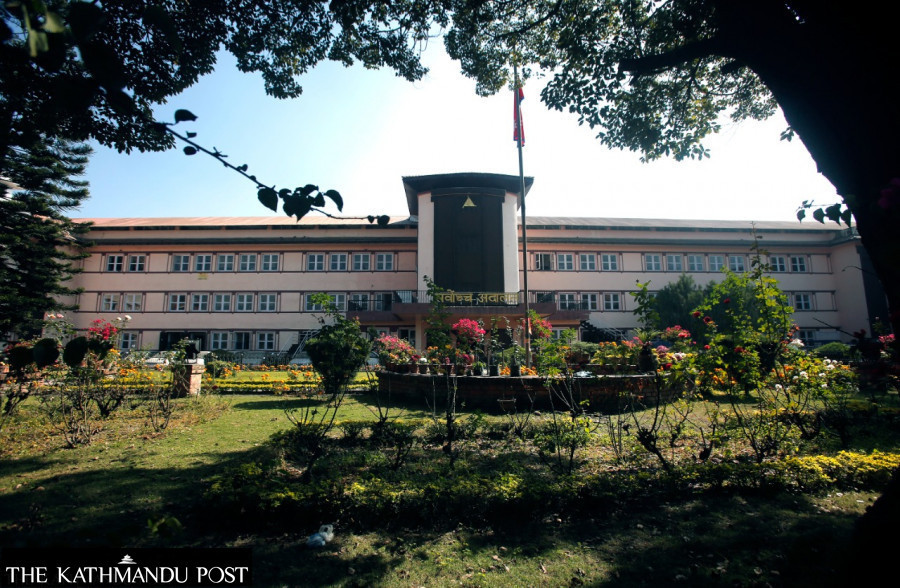National
Top court orders registration of same sex marriages
Government ordered to form a temporary mechanism to register such marriages pending final verdict.
Binod Ghimire
In yet another intervention in ensuring the rights of the sexual and gender minorities, the Supreme Court on Tuesday directed the government to register the marriages of same sex and traditional non-heterosexual couples.
A single bench of Justice Til Prasad Shrestha issued an interim order against the government based on the different constitutional provisions that ensure equality of every individual before law. Responding to a writ petition from rights activists and advocates, the court also has issued a show cause notice demanding a written clarification about the legal instruments regarding same sex marriage.
“This is a historic verdict for our community. Hundreds of couples will benefit from it,” Pinky Gurung, president of the Blue Diamond Society, a non-governmental organisation advocating the rights of sexual and gender minorities, told the Post.
Following a preliminary hearing, the single bench concluded that same sex marriages must be registered as per Article 18 (1) and Article 69 (1) of the Constitution of Nepal which ensure the right to equality and right to get married to any individual. As per the ruling, the government must constitute an interim mechanism to register the marriage until the final verdict is issued.
The final hearing in the public interest litigation will begin once the government furnishes its answer as demanded in the show cause notice. Anurag Devkota, one of the petitioners, said though the different Supreme Court rulings in the past had opened the doors for same sex marriage, Tuesday’s ruling is vital as regards the procedural aspect of marriage registration.
In 2015, the Supreme Court issued a directive to revise or scrap all the discriminatory laws against the sexual and gender minorities and formulate law for same sex marriage after a study. Though the study report, which recommended allowing all forms of marriage, was submitted to the government in 2015, successive governments took no step to frame the law. Instead the Civil Code remained in force with all its discriminatory provisions. It acknowledges marriage as when a man and a woman accept each other as husband and wife.
“The Civil Code must be revised to include same-sex marriage,” said Devkota. “We expect the Supreme Court will issue a directive to this effect in its final verdict.” He said at least 200 couples will benefit immediately from the court’s ruling.
Rights activists say the ruling entitles rights to same sex and third gender couples equal to heterosexual marriage couples. “Parliament may take a while to pass the marriage equality law but this order gives a practical solution to members of sexual and gender minority communities who wish to register their marriage legally,” said Sunil Babu Pant, founding president of the Blue Diamond Society.
In December last year, the Supreme Court had directed the government to grant a non-tourist visa to Tobias Volz, a German national who was married to Adheep Pokharel, a Nepali citizen. The gay couple had married in 2018 in Germany. The government had refused to provide a non-tourist visa to Volz, saying it does not recognise their marriage. Intervening in the matter, the court directed the government to give Volz a non-tourist visa.
In 2017, a lesbian couple—Suman Panta, a Nepali, and Leslie Luin Melnik, a US citizen—had also challenged Nepal government’s decision to deny a non-tourist visa to the American. The court had said, “If a foreign national claiming to be married to a Nepali citizen submits a marriage registration certificate and the Nepali citizen confirms the marriage in their visa application, then the foreign national should not be denied a visa.”
Devkota said Nepal’s judiciary has always made positive intervention in ensuring the rights of sexual and gender minorities. “Tuesday’s ruling is yet another one towards ensuring equality,” he said.




 18.12°C Kathmandu
18.12°C Kathmandu














